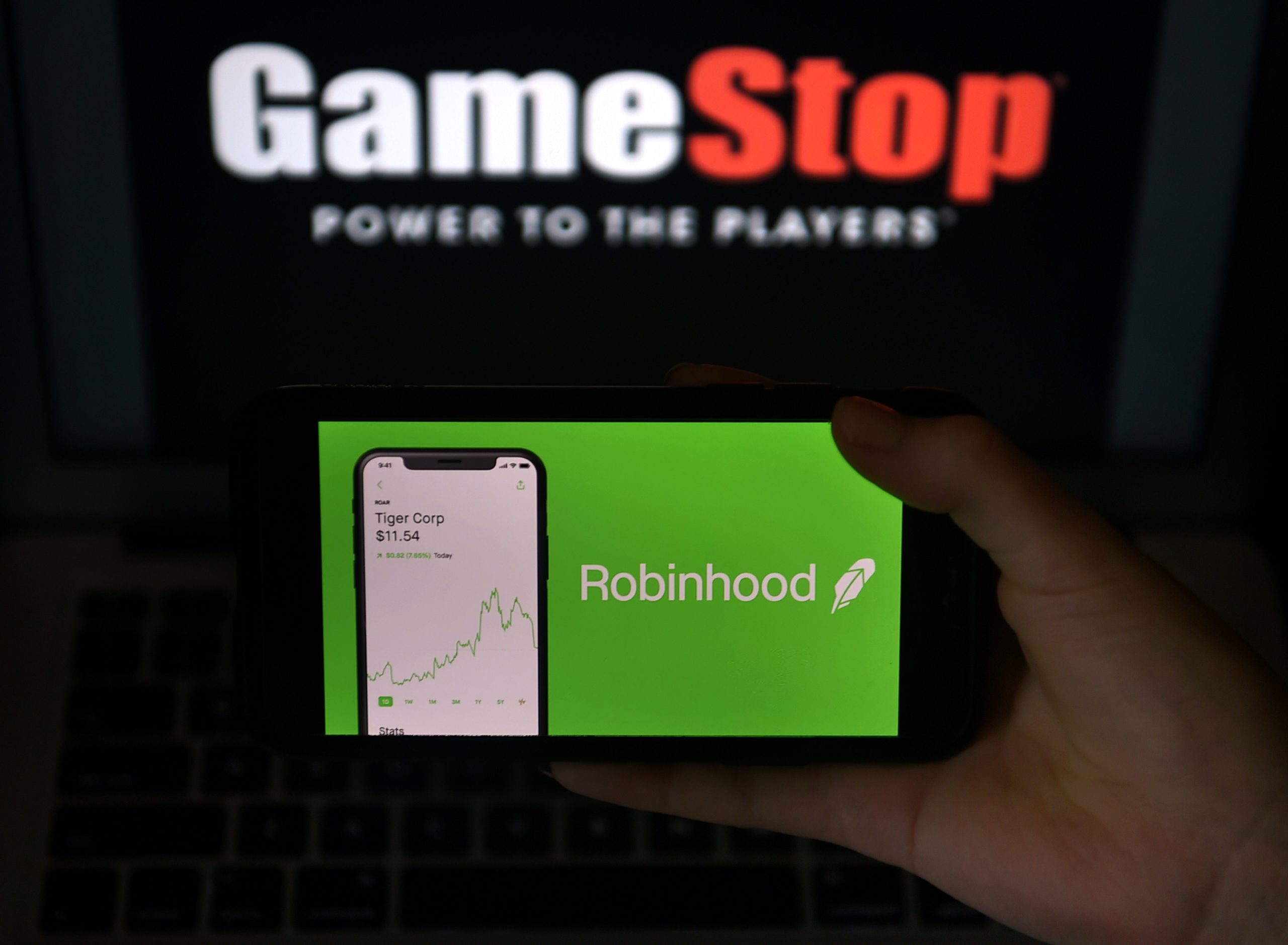- The WallStreetBets short squeeze allowed some companies to raise cash to improve their financial standing.
- Despite the rise in stock price, GameStop’s long-term position is still likely poor.
- If GameStop declared bankruptcy, shareholders would be unlikely to recoup any stock losses.
Despite its stock price peaking at $468.59 on Jan. 28, the company GameStop may still struggle long-term.
GameStop operated 5,509 stores in Feb. 2020 in the United States, Canada, Australia and Europe, according to documents filed with the SEC. The COVID-19 pandemic forced GameStop to permanently close about 500 stores, according to the Dallas Morning News. Despite making more of an effort to promote online sales during the pandemic, GameStop sales still decreased 27% in 2020 Q2 relative to the same period in 2019.
The raised stock price associated with the WallStreetBets short squeeze may allow GameStop to raise funds by selling shares, DailyFX analyst Peter Hanks told Screenrant. However, the potential increase in cash flow from the short squeeze does not change the fact that the company struggled to respond to the shift to online sales. Therefore, the underlying factors led business forecaster Kiplinger to suggest that “bankruptcy still is a longer-term possibility” for GameStop. (RELATED: ‘It’s Making Me Sick!’: Charles Payne Goes Off At Wall Street ‘Whining’ Over GameStop Stock Surge)
When companies declare bankruptcy, their actions are regulated by Title 11 of the United States Code. US bankruptcy law was last updated in 2005. The 2005 bill, which was spearheaded by Iowa Republican Senator Chuck Grassley and then-Delaware Senator and now-President Joe Biden, made it harder for individuals to declare bankruptcy in order to avoid paying back creditors, according to the Washington Post.
Bankruptcies can be declared in order to liquidate or reorganize an individual’s or company’s assets. A liquidation, or Chapter 7, bankruptcy requires that the individual or firm declaring bankruptcy sell any remaining assets that it holds to pay off creditors, according to Investopedia. Shareholders of a company declaring Chapter 7 bankruptcy may only receive assets from their stock purchases after the company pays off its creditors. In practice, shareholders almost never receive any money back from a company that declares Chapter 7 bankruptcy.
GameStop held $485.5 million in debt at the end of Q3 2020, while it held $445.9 million in cash on hand at the same time. Although we will not know the exact amount until its Q4 earnings report is released, it is likely that GameStop raised enough money from the stock price increase to avoid either Chapter 7 or Chapter 11 bankruptcy for the foreseeable future.

This photo illustration shows the logos of video grame retail store GameStop and trading application Robinhood (Photo by OLIVIER DOULIERY/AFP via Getty Images)
Chapter 11 bankruptcy, the other option for corporations, allows them to restructure their debt and pay off creditors. A corporation can stay in business after filing for Chapter 11 bankruptcy, according to Investopedia. For instance, when the NRA announced that it would move to Texas, the gun rights organization also filed for Chapter 11 bankruptcy protections.
Unfortunately for shareholders, like in Chapter 7, Chapter 11 bankruptcy often leads a company’s stock to become nearly worthless. Many companies undergoing a Chapter 11 bankruptcy issue new stock shares and give them to creditors as a way of paying off debt, according to the Motley Fool financial blog. As a result, the stock held by common shareholders becomes worthless. Out of 41 publicly traded companies that declared bankruptcy in 2009 and 2010 following the recession, only four gave money back to common shareholders, the Motley Fool noted.


